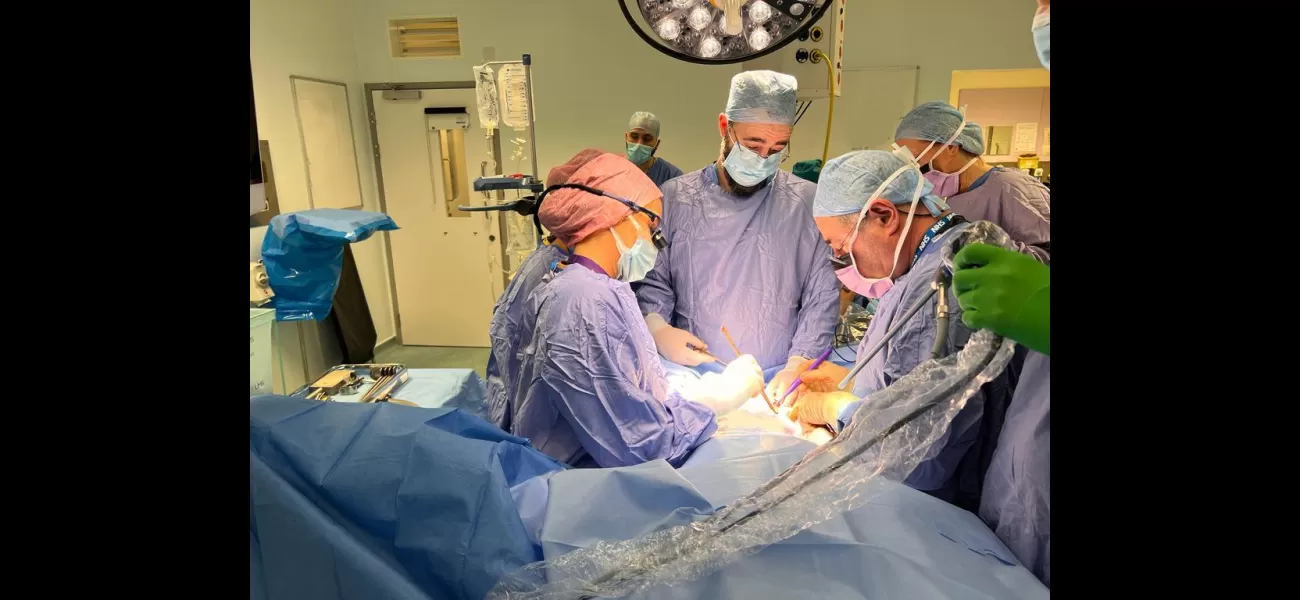UK's first womb transplant was massively successful, giving hope to women seeking to have a baby.
She gave her sister the gift of starting a family of her own by helping her out.
August 22nd 2023.

The UK has made history with its first successful womb transplant. A mother-of-two donated her womb to her sister, a 34-year-old woman living in England who suffers from Mayer-Rokitansky-Kuster-Hauser (MRKH) Syndrome. This rare condition affects 1 in 5,000 women and results in an underdeveloped or missing uterus.
The transplant was made possible by a team of more than 30 staff at the Churchill Hospital in Oxford. The procedure took 17 hours to complete and involved first removing the donor's womb and then transplanting it into the recipient. The surgery was a success and Professor Richard Smith, the clinical lead at the charity Womb Transplant UK, described the experience as ‘quite remarkable’ and ‘unbelievably positive’.
The recipient is now on immunosuppressant drugs to prevent her body from rejecting the donor organ. She has stored embryos and will undergo IVF later this year, with the hope of giving birth to two babies.
The transplant cost around £25,000 and was paid for by Womb Transplant UK. The charity has approval to carry out 10 further transplants, five of which are with living donors. Professor Smith estimates that 20 to 30 operations will take place each year and that around 15,000 women in the UK of childbearing age could benefit from this procedure.
Since the first successful womb transplant in Sweden in 2014, more than 90 transplants have taken place around the world. Kirsty Bryant became the first woman in Australia to receive a uterine transplant after her mother donated the womb she grew in. The baby, named Vincent, was welcomed into the world by his 36-year-old mother who described him as ‘perfect’.
The UK’s first successful womb transplant is a great milestone in medical history and provides hope to many women who are unable to conceive due to health conditions. It is a testament to the hard work of the surgeons, medical staff, and the selfless donor who made it possible.
The transplant was made possible by a team of more than 30 staff at the Churchill Hospital in Oxford. The procedure took 17 hours to complete and involved first removing the donor's womb and then transplanting it into the recipient. The surgery was a success and Professor Richard Smith, the clinical lead at the charity Womb Transplant UK, described the experience as ‘quite remarkable’ and ‘unbelievably positive’.
The recipient is now on immunosuppressant drugs to prevent her body from rejecting the donor organ. She has stored embryos and will undergo IVF later this year, with the hope of giving birth to two babies.
The transplant cost around £25,000 and was paid for by Womb Transplant UK. The charity has approval to carry out 10 further transplants, five of which are with living donors. Professor Smith estimates that 20 to 30 operations will take place each year and that around 15,000 women in the UK of childbearing age could benefit from this procedure.
Since the first successful womb transplant in Sweden in 2014, more than 90 transplants have taken place around the world. Kirsty Bryant became the first woman in Australia to receive a uterine transplant after her mother donated the womb she grew in. The baby, named Vincent, was welcomed into the world by his 36-year-old mother who described him as ‘perfect’.
The UK’s first successful womb transplant is a great milestone in medical history and provides hope to many women who are unable to conceive due to health conditions. It is a testament to the hard work of the surgeons, medical staff, and the selfless donor who made it possible.
[This article has been trending online recently and has been generated with AI. Your feed is customized.]
[Generative AI is experimental.]
0
0
Submit Comment





